
Deputy PM, FM Bui Thanh Son welcomes Hungarian Minister of Foreign Affairs and Trade Szijjártó Péter
Latest
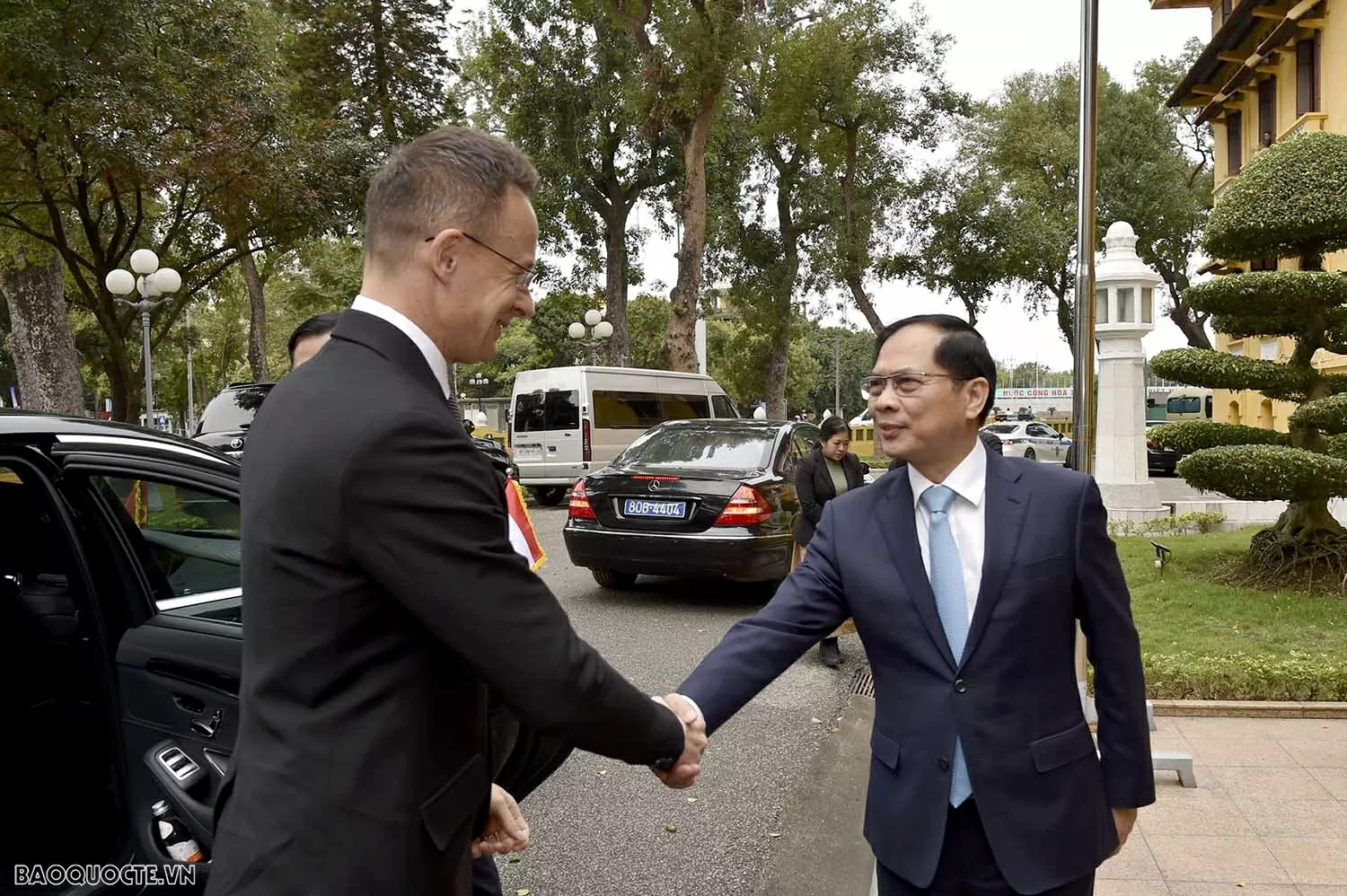 |
| On the morning of March 19, at the Headquarters of the Ministry of Foreign Affairs, Deputy Prime Minister and Minister of Foreign Affairs Bui Thanh Son welcomed Hungarian Minister of Foreign Affairs and Trade Szijjártó Péter. (Photo: Quang Hoa) |
At the invitation of Deputy Prime Minister and Minister of Foreign Affairs Bui Thanh Son, Hungarian Minister of Foreign Affairs and Trade Szijjártó Péter is on an official visit to Vietnam from March 18-19, 2025.
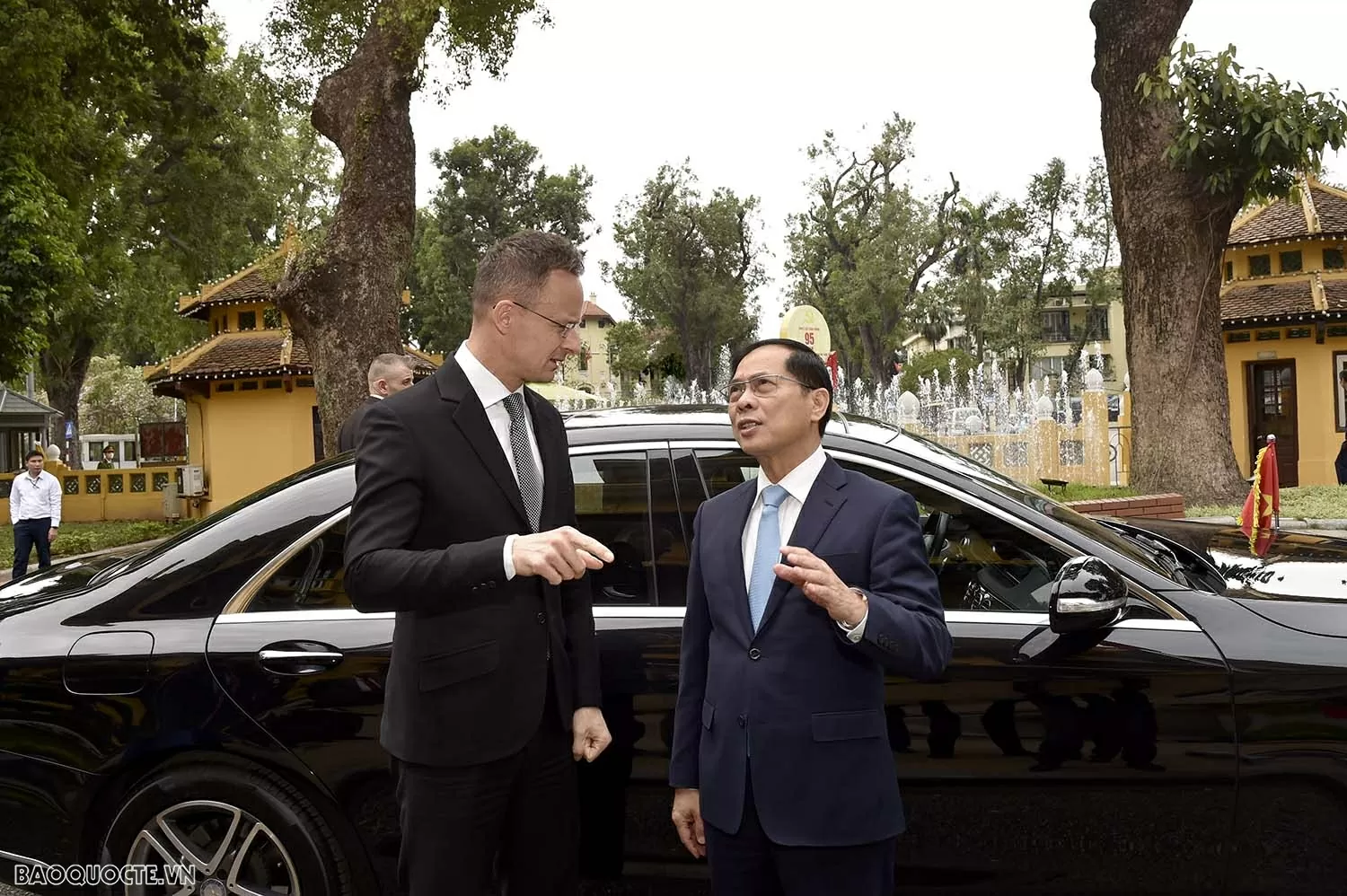 |
| Deputy Prime Minister and Minister of Foreign Affairs Bui Thanh Son and Hungarian Minister of Foreign Affairs and External Economy Szijjártó Péter. (Photo: Quang Hoa) |
Vietnam and Hungary established diplomatic relations in February, 1950, and over the past seven decades, the two countries have continuously strengthened their traditional friendship while expanding cooperation in various fields.
The two sides elevated their ties to a Comprehensive Partnership in September 2018 during the visit of General Secretary Nguyen Phu Trong to Hungary. This made Hungary the first Comprehensive Partner of Vietnam in Central and Eastern Europe, opening a new phase of development in bilateral relations.
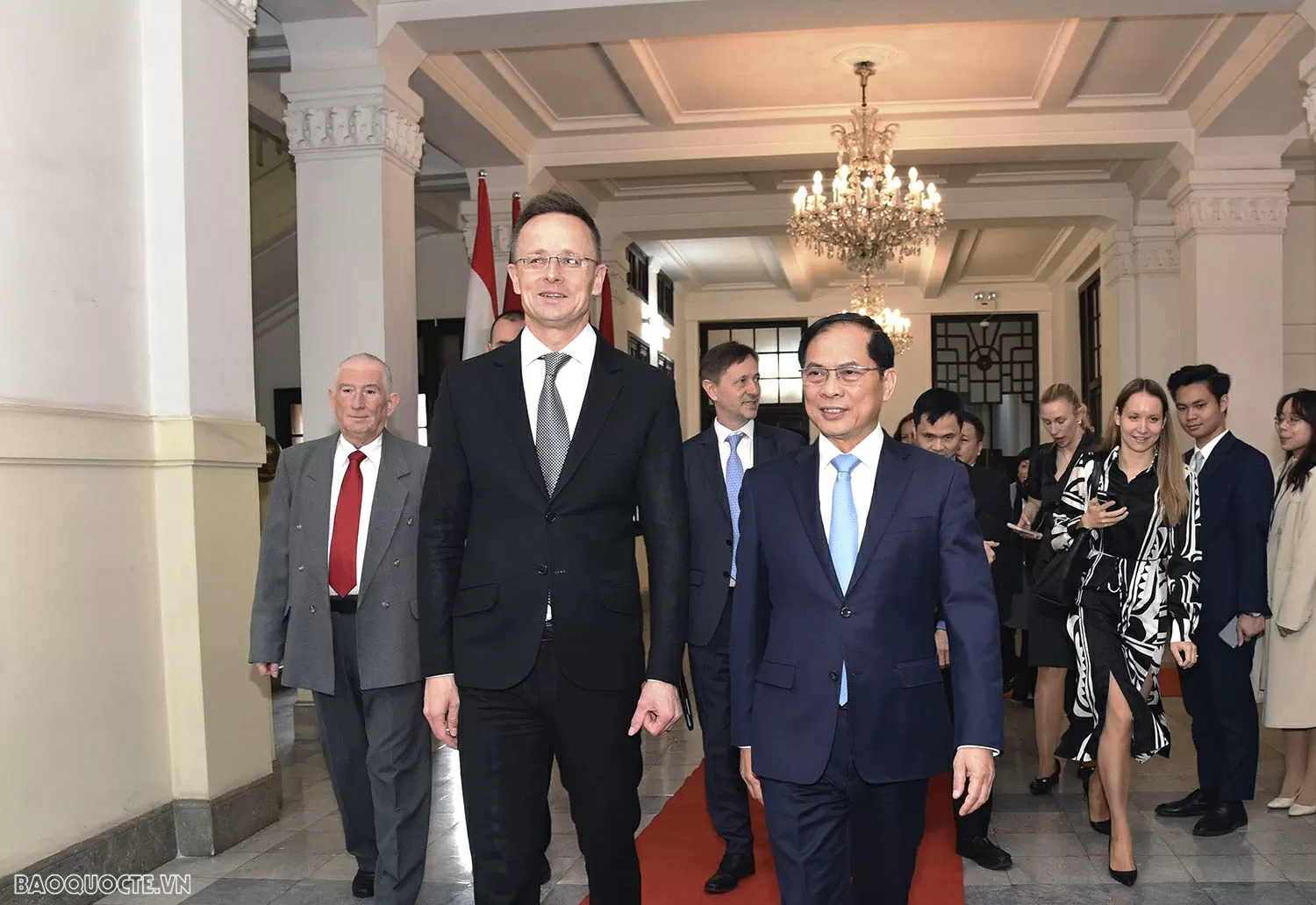 |
| Vietnam and Hungary established diplomatic relations in February, 1950, and over the past seven decades, the two countries have continuously strengthened their traditional friendship while expanding cooperation in various fields. (Photo: Quang Hoa) |
Since the upgrade to a Comprehensive Partnership, bilateral trade has significantly increased, surpassing the $1 billion mark, making Vietnam one of Hungary's largest trading partners in Southeast Asia.
Hungary considers Vietnam a priority in its official development assistance (ODA) policy, committing 440 million Euro (about 465 million USD) in concessional loans to implement projects in priority areas of cooperation between the two countries.
Currently, Hungary is the country that offers the most scholarships to Vietnamese students in Central and Eastern Europe, with around 200 scholarships annually. Hungary was also one of the first countries to ratify the Vietnam-EU Free Trade Agreement (EVFTA) and the first EU member state to approve the Vietnam-EU Investment Protection Agreement (EVIPA).
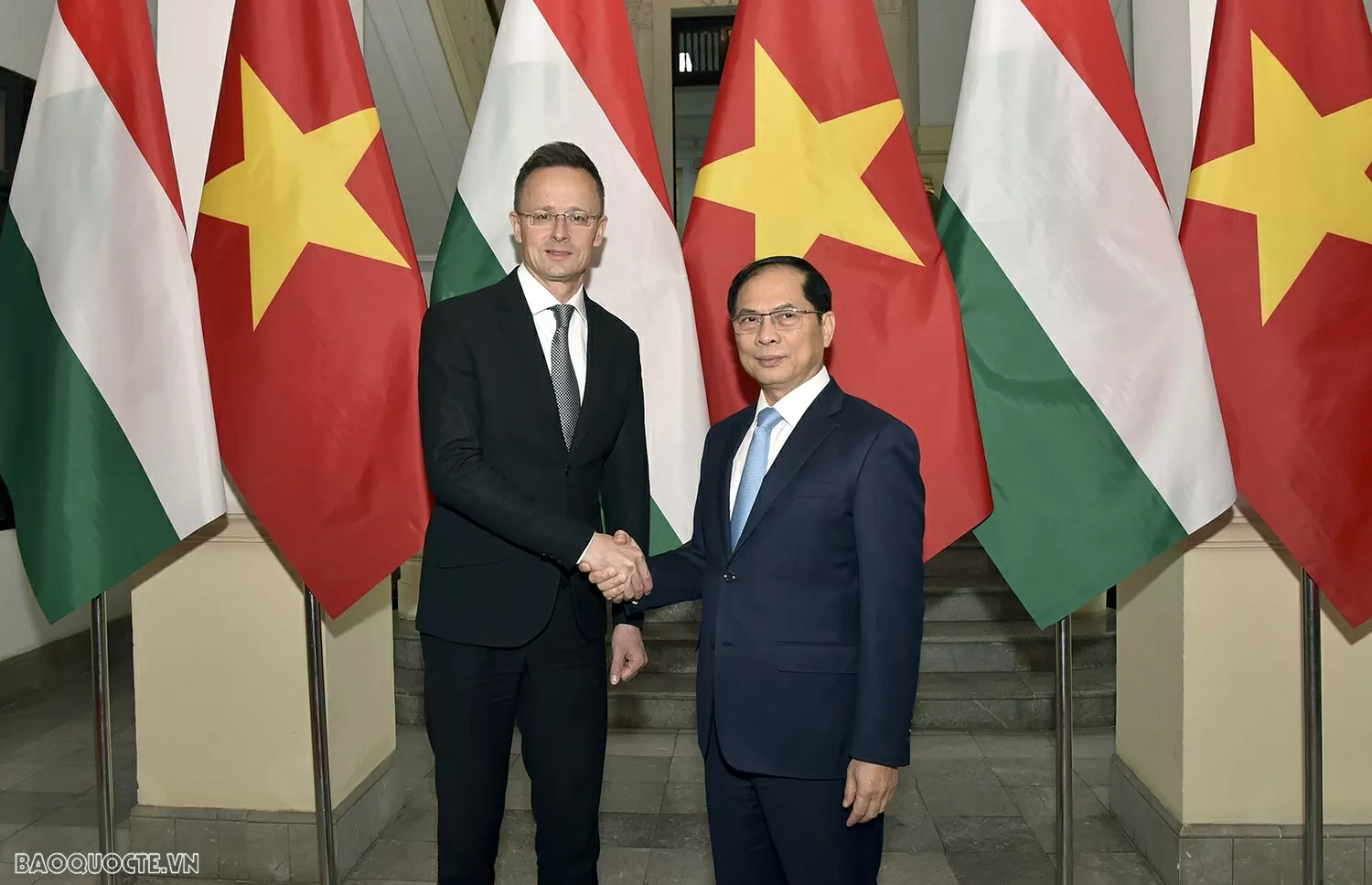 |
| Deputy Prime Minister and Minister of Foreign Affairs Bui Thanh Son welcomes Hungarian Minister of Foreign Affairs and External Economy Szijjártó Péter. (Photo: Quang Hoa) |
Additionally, the two countries have signed numerous cooperation agreements across almost all fields, creating a vital legal framework and a solid foundation to strengthen and deepen bilateral cooperation in a practical and effective manner.
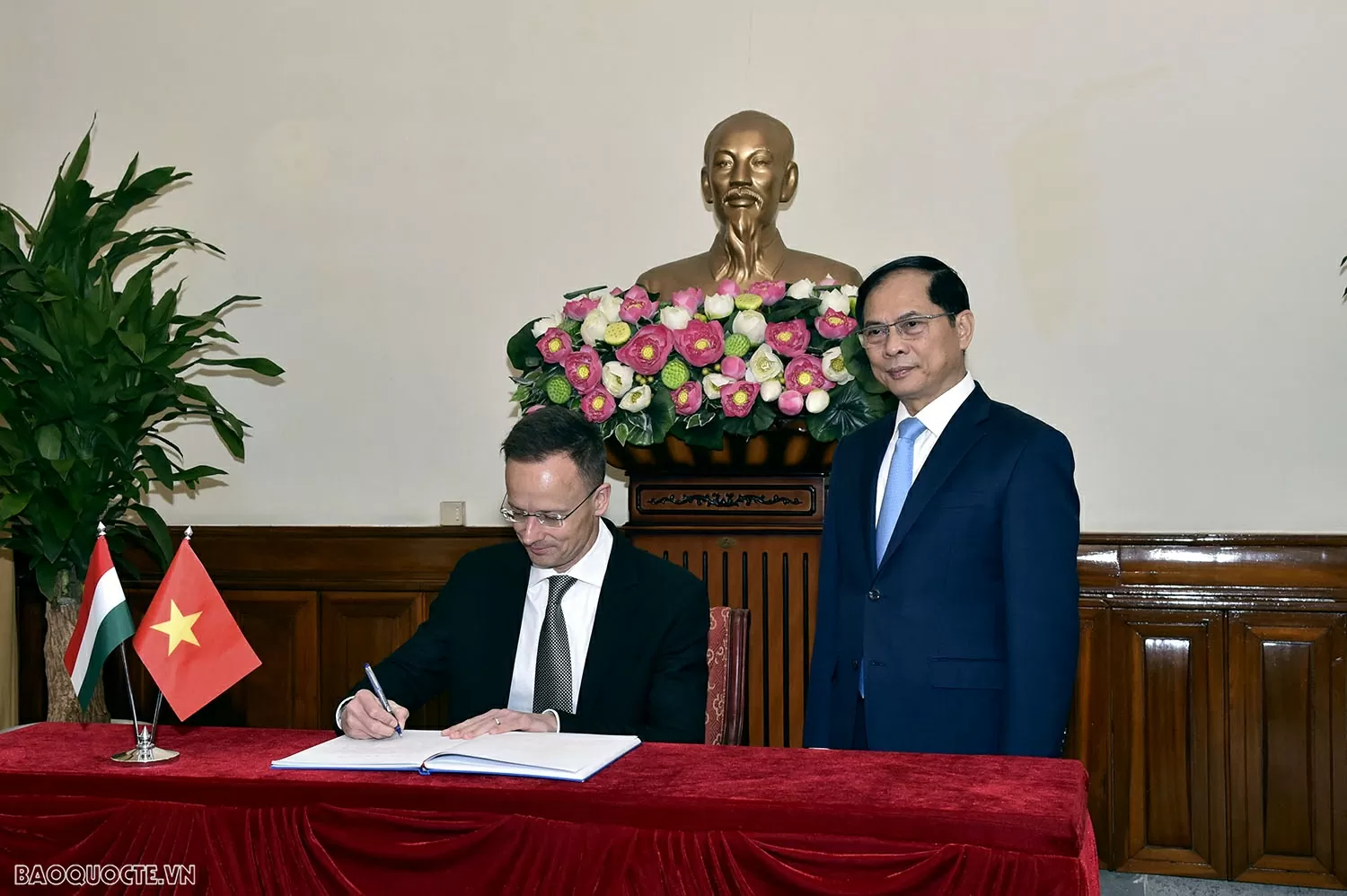 |
| Hungarian Minister of Foreign Affairs and External Economy Szijjártó Péter signed the Guest Book. (Photo: Quang Hoa) |
After the welcome ceremony, Deputy Prime Minister and Minister of Foreign Affairs Bui Thanh Son and Hungarian Minister of Foreign Affairs and External Economy Szijjártó Péter hold talks.
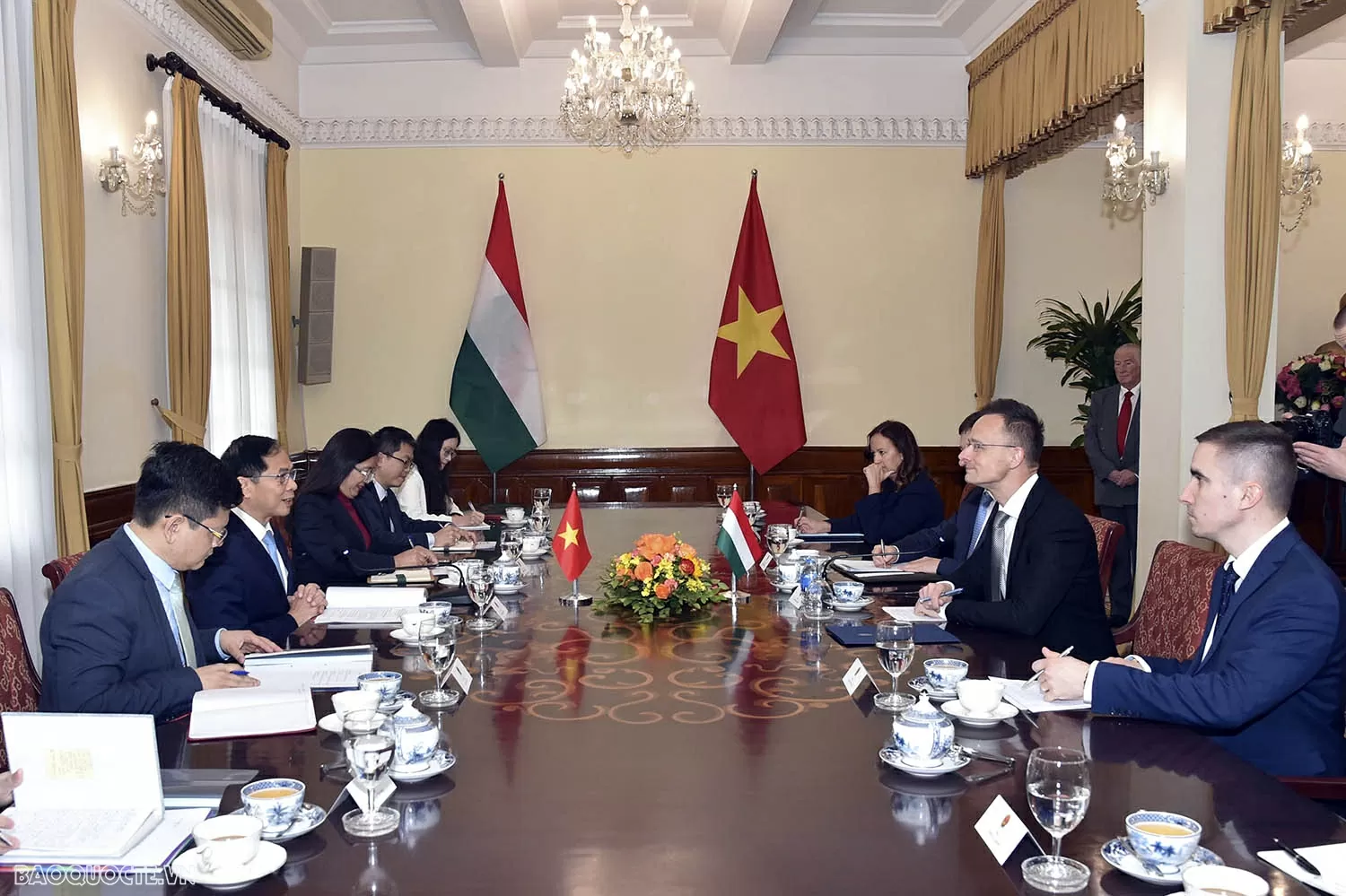 |
| Deputy Prime Minister and Minister of Foreign Affairs Bui Thanh Son and Hungarian Minister of Foreign Affairs and External Economy Szijjártó Péter hold talks. (Photo: Quang Hoa) |
According to the Vietnamese Ambassador to Hungary, the visit of Minister of Foreign Affairs and External Economy Szijjártó Péter is expected to open up many new cooperation opportunities, contributing to the strengthening and development of the Comprehensive Partnership between the two countries and bringing the relationship to deeper and more effective levels.
The visit also serves as an opportunity for both sides to review the comprehensive cooperation between the two countries in recent times and assess the implementation of signed cooperation agreements, particularly those signed during the visit of Prime Minister Pham Minh Chinh to Hungary in January 2024. Additionally, it provides a platform to discuss preparations for the 10th session of the Vietnam-Hungary Joint Committee on Economic Cooperation, aiming to implement measures to further strengthen bilateral relations, especially in the fields of economy, trade, and investment.









